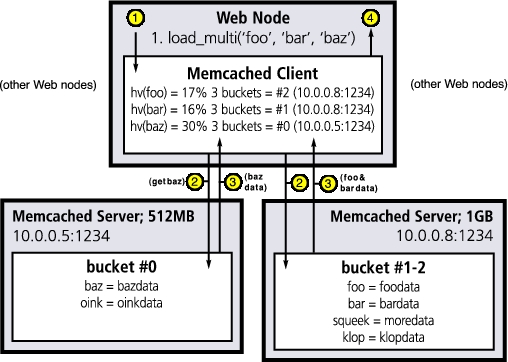
Number of authentication commands handled, success or failure. Numer of items that have been touched and not found Numer of keys that have been touched with a new expiration time Number of CAS reqs for which a key was found, but the CAS value did not match. Number of decr reqs against missing keys. Number of incr reqs against missing keys. Number of deletion reqs resulting in an item being removed. Number of deletions reqs for missing keys Number of items that have been requested and not found Number of keys that have been requested and found present Number of connection structures allocated by the server Total number of connections opened since the server started running Total number of items stored since the server startedĬurrent number of bytes used to store items NameĬurrent UNIX time according to the serverĭefault size of pointers on the host OS (generally 32 or 64)Īccumulated user time for this process (seconds:microseconds)Īccumulated system time for this process (seconds:microseconds) Here is an explanation of the different memcached stats. To view the statistics for memcached, bring up a telnet connection to memcached by the command: telnet 127.0.0.1 11211 Mc.set("key", "1") # note that the key used for incr/decr must be a string.
#Python memcached client install#
pip install python-memcachedĬreate this simple python script to test that it works. The first is for Python 2.x while the second is for Python 3.x. To interface with memcached in Python, you need to install the memcached client for Python.Įxecute one of the following command to install the memcached client. $memcache->set('key', $tmp_object, false, 10) or die ("Failed to save data at the server") Įcho "Store data in the cache (data will expire in 10 seconds)\n" connect('localhost', 11211) or die ("Could not connect")
#Python memcached client download#
If not, download the file from (select the windows dll file), and place it in the PHP extension folder.Īdd the following line in php.ini to enable the memcache extension: extension=php_memcache.dllĬreate this simple php script file to test that it works. To interface with memcached in PHP, you need to install the memcache extension for PHP:Ĭheck that your PHP extension folder has the file php_memcache.dll. Meanwhile, to remove the scheduled memcached task, run the following command: schtasks /delete /tn memcached Run c:\memcached\memcached.exe -h to view the list of available parameters.

To configure the memcached process to run automatically every time windows start, run a command prompt with elevated privileges, and type the following: schtasks /create /sc onstart /tn memcached /tr "'c:\memcached\memcached.exe' -m 512" It must be started as a normal process using the task scheduler. In version 1.4.5 or later, memcached cannot run as a service. A) Installation of memcached = 1.4.5:Įxtract the memcached windows binary to any directory. and part B for memcached version 1.4.5 and later. Therefore, the installation steps are divided into two categories, part A for memcached prior to version 1.4.5.

However, the ability to run memcached as a service is removed since version 1.4.5. In versions earlier than 1.4.5, memcached can install itself as a service.

The following are the download links for the memcached windows binaries: There are two major sources for the pre-built windows binary: Jellycan and Northscale, and both versions can be used. Memcached is originally a linux application, but since it is open-source, it has been compiled for windows. Its main purpose is to speed up web applications by caching database queries, contents, or other computed results. Memcached is a high performance, in-memory key-value store or caching system.


 0 kommentar(er)
0 kommentar(er)
